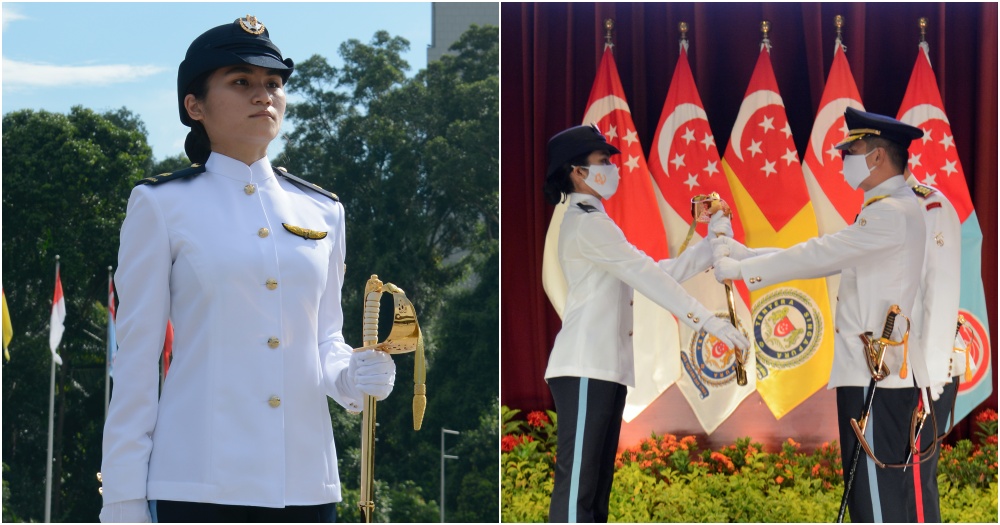Follow us on Telegram for the latest updates: https://t.me/mothershipsg
PERSPECTIVE: Lieutenant Tin Zi Xuan, 26, was among 193 cadets commissioned as officers of the Singapore Armed Forces (SAF) on Sep. 5, after completing 38 weeks of training at the Officer Cadet School (OCS).
Tin received the Sword of Honour for being the best trainee in her batch. She's also the only woman who received the accolade in this OCS batch of graduates.
Speaking to Mothership, Tin tells us why she decided to pursue a military career after graduating from the National University of Singapore (NUS), and what it's like to be a woman in a male-dominated environment.
As told to Syahindah Ishak
I signed on with the RSAF (Republic of Singapore Air Force) on July 14, 2020.
Joining the military was something that I've always wanted to do, mainly because I wanted to play a part to defend my own country.
With this interest, I decided that I would take it seriously after university.
I studied life sciences in the National University of Singapore but I didn't want to pursue a research career after my university — I didn't want to be confined to just lab work, I wanted a more exciting and fulfilling career.
So, I did some research and compared the different vocations between the army, air force, and navy. I found that the role of an air warfare officer enticed me the most because of how complex and challenging it is.
In fact, since I was young, I've always been very fascinated by the jets that fly across Singapore skies, so the RSAF was the right choice for me.
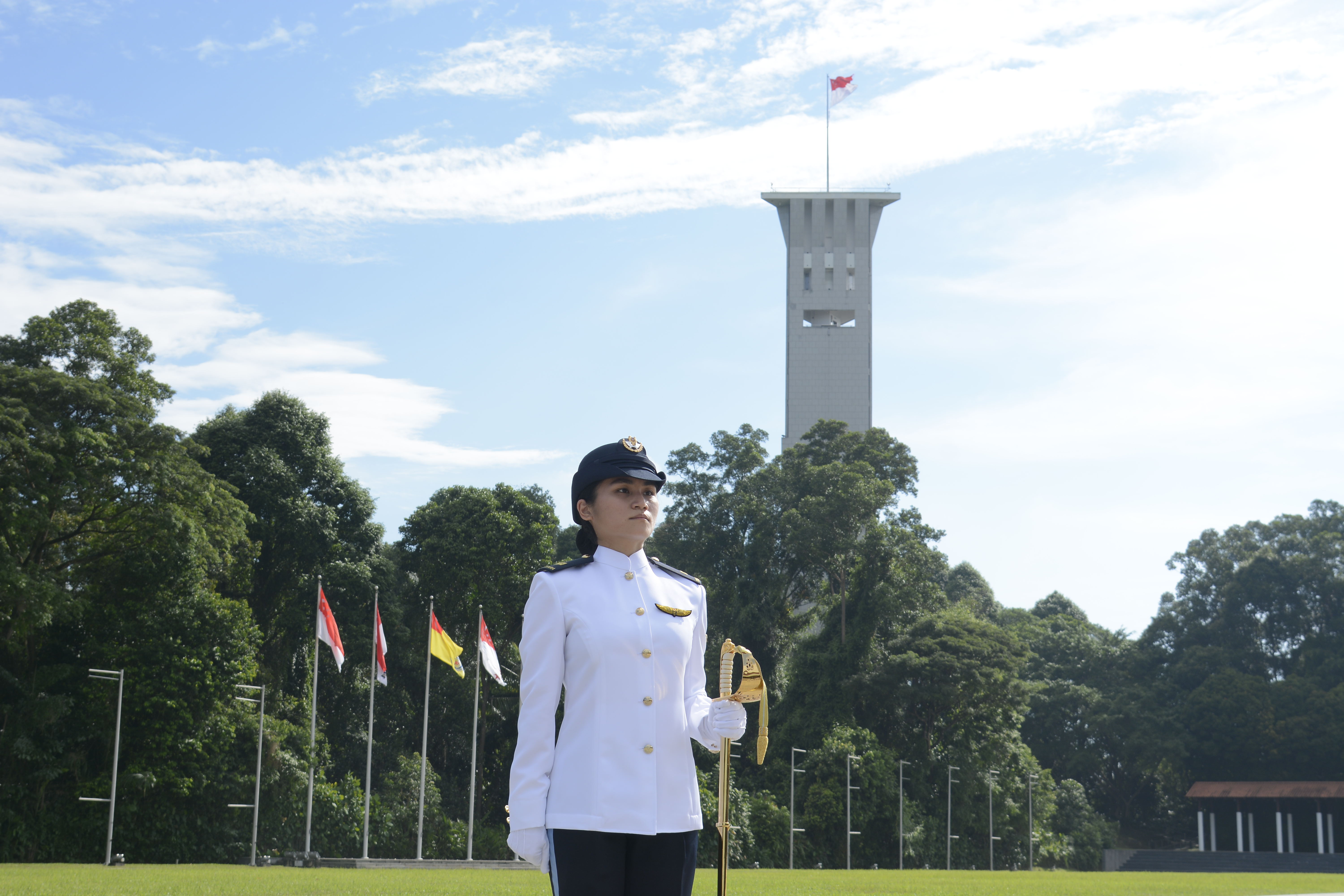 Image courtesy of the Ministry of Defence.
Image courtesy of the Ministry of Defence.
By joining the military, I also knew that I would set an example for future generations of girls. I want them to know that this can be done — that military life can be for women too.
I remember once when my friends and I— we were all women in our military uniforms— were heading to the MRT. There was a girl who saw us and kept pointing at us. She kept saying, "A soldier!"
It was very endearing and cute that these kids see women as soldiers too.
It also made me realise how important it is for women to have representation in the military.
How many women are there in the air force?
It's not a very large number but over the years, more women are choosing to sign on.
What is it like to be a woman in a male-dominated environment? Was there anything that surprised you?
I think I did a lot of research and mental preparation before my BMT (basic military training) so I didn't really get a culture shock. I kind of knew what to expect.
Military life in general is very challenging, both physically and mentally. It has nothing to do with my gender.
Of course, there are some things I had to adapt to. In the beginning, it took some time to get used to each other but after a while, I didn't feel any differences at all.
In fact, I've been able to work hand in hand with my male counterparts.
It's actually very refreshing because they are the ones who will help me when I face problems during my training. It's a 'brotherhood' that I won't get in an external workforce.
We often exercise together. Even after training, we would play mobile games with one another to strengthen our bond. We're very close.
Have you ever been treated differently because of your gender?
That's never happened before. We're all always there for one another, regardless of our genders.
If someone is facing an issue, everyone is there to help out.
My male counterparts have said that people like myself contribute to the force in more nurturing ways. When the guys face some problems, they will come and talk to me personally. I guess they find women more approachable?
Have you ever felt insecure or self-conscious?
To be honest, throughout my military journey, instead of having negative thoughts or feeling insecure, I felt a strong sense of positivity.
What are some misconceptions that people have about women in the military?
I often get asked about the female and male standards for trainings. Some people think that for women, our field packs are lighter but there's definitely no difference in the weight.
I remember vividly during my OCS training, there were a few guys who looked at the girls and said, "How did you manage to carry that weight?"
It wasn't anything condescending or negative. They were really surprised that we could carry the same weight and march the same distance.
Training with men must be tough, though. Did you have to have extra training to keep up with the guys?
For BMT, we were trained in accordance to our fitness level and adaptability so I didn't get to train with the guys.
I only managed to do so in OCS. It was the same for everyone, male or female.
The trainings were very tough and rigorous. We were pushed to our limits basically, so it didn't matter if I was a man or a woman, we all just wanted to get through it together.
And no, I didn't have to train more. We trained together and made sure we progressed together. It wasn't a me versus you thing — we're all in it together. I never once felt like I was lacking or behind.
But there are different standards for men and women, right? Like IPPT for example. Do you think these differences impact the way people view female soldiers?
Yes, for IPPT, there's a difference in the female and male standard. Some adjustments have to be made because of the differences in our physical structures.
While females are not assessed using the same standards, that doesn't mean that the women's IPPT is easier. It is as equally challenging for females to attain a gold as it is for males.
However, for OCS training, all of us are assessed using the same standards in order to graduate. There's no differences in our trainings. Whatever the guys did, I had to do the same.
Speaking of OCS, how does an individual get chosen for it?
You must excel in your physical tests, have a good disciplinary record and you must also show leadership potential.
Were there other women in OCS?
Yes, but not a lot. Just a handful of us.
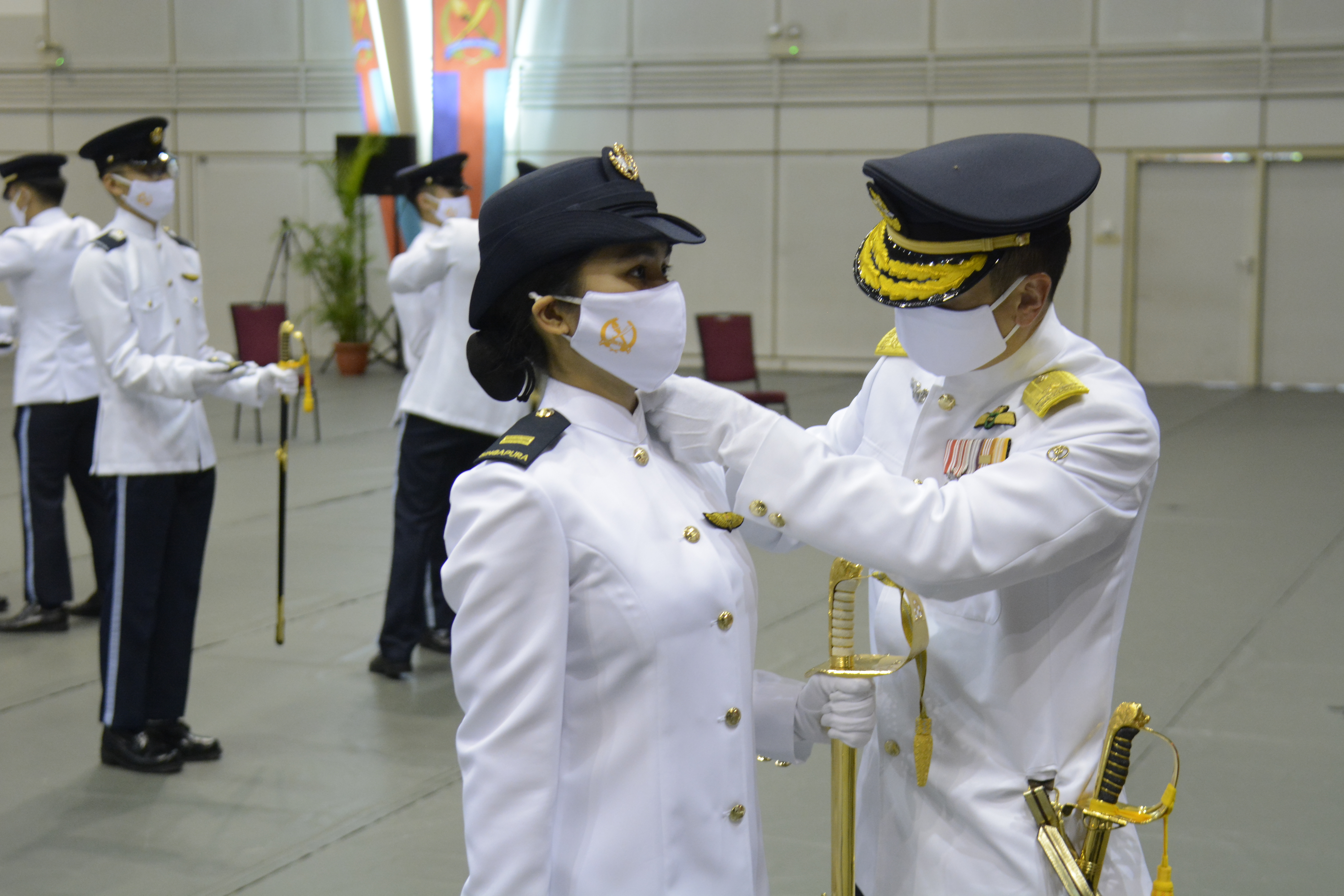 Image courtesy of the Ministry of Defence.
Image courtesy of the Ministry of Defence.
I know that you received the Sword of Honour when you graduated from OCS. What is the significance of this award?
If you receive the Sword of Honour, it basically means that you're top of the cohort.
I was very surprised when I got it. I wasn't expecting it at all. But I was also relieved to know that my hard work paid off.
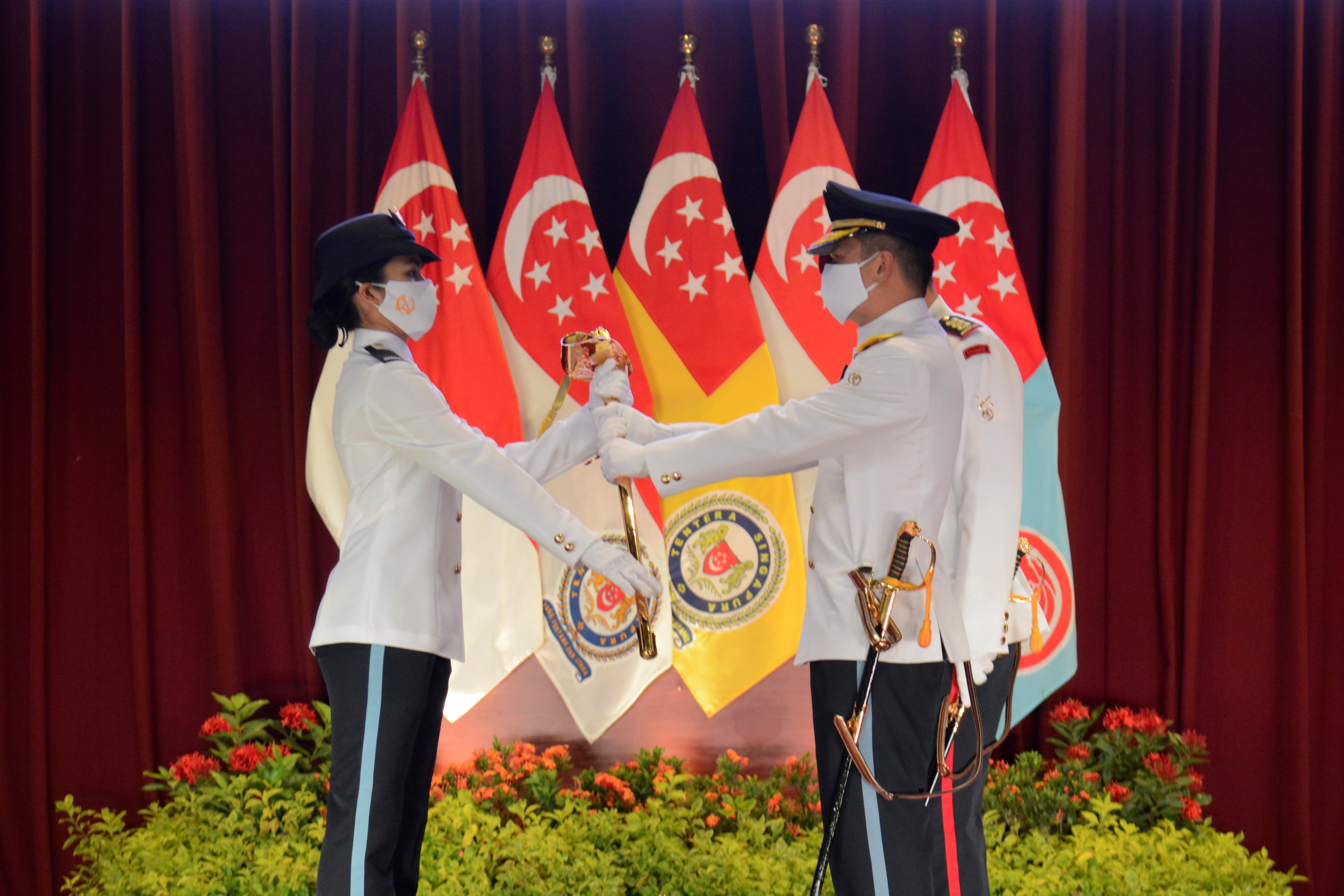 Image courtesy of the Ministry of Defence.
Image courtesy of the Ministry of Defence.
It's not based on gender, right? So you also had to go against the guys for this award?
Each service— army, navy, air force— would have one recipient.
The Sword of Honour is for the top trainee — it doesn't matter if you're a woman or a man.
Were you the only woman who received the Sword of Honour?
For my batch, yes.
What does it take to be awarded the Sword of Honour?
In order to get it, you have to excel in the military training academics and physical trainings.
You have to be very good in your vocational training and knowledge. And your IPPT must definitely be gold.
The commanders would also assess your leadership skills and see if you are suitable for the award.
Obviously, it must be easier said than done. Were there moments when you felt like giving up?
No, I never felt like giving up.
I mean, there were many tough moments of course, especially during my OCS trainings. But I continued to push on.
What motivated you to carry on?
My mother was a big source of motivation for me. She's always been there for me and was always very supportive.
As a single mother, her strength and resilience has always inspired me. During the tough times, I'll think about her and it will give me a lot of strength to continue to push through.
She also does a lot of things for me. Every morning, when I'm in camp, she would send me WhatsApp stickers to encourage me for the day. It makes me feel comforted because I know that she's always there for me.
And on Fridays, when I book out, she would cook nice meals for me. It's these small little things that have a big impact.
How did your mum react when you received the sword of honour?
Initially, she didn't know anything about the award.
After I explained to her what it meant, she expressed that she was really proud of me. She even freed up a section in our house to display my awards.
Now that you're an officer, are you daunted by the thought of having to lead a group of men in the future?
I feel slightly apprehensive, but like what our commanders always told us, being apprehensive is actually a good thing because it tells you that you know where you stand, and that you have room for improvement.
Other than the apprehensiveness, I actually feel really excited to step into the real ops environment.
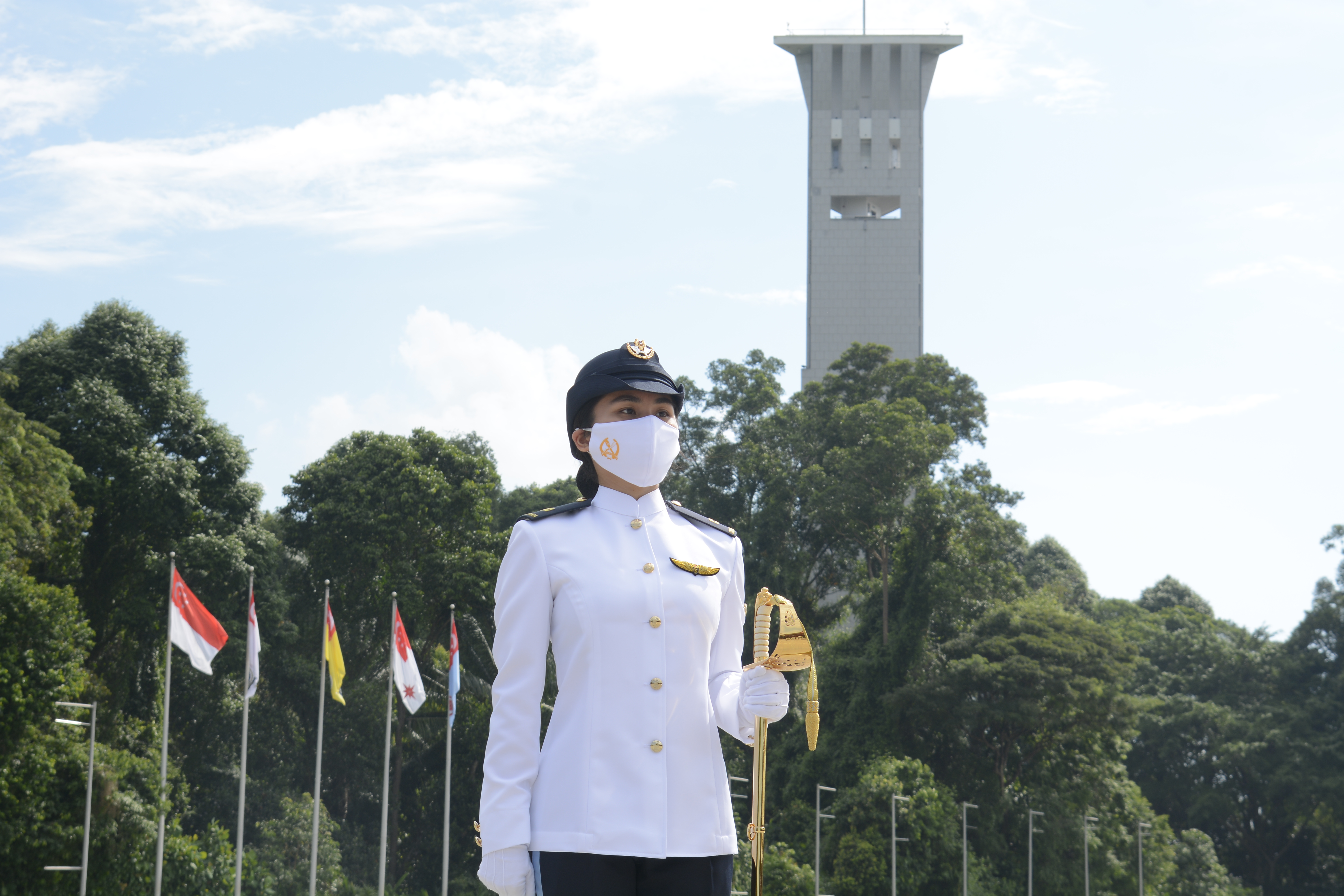 Image courtesy of the Ministry of Defence.
Image courtesy of the Ministry of Defence.
What advice would you give to one who might be interested in a military career?
A military career is not something that just anyone can pursue.
You really need to have the passion to defend your country and believe very strongly that it is your responsibility to do so.
As much as a military career can offer you a lot of exciting opportunities, I think you need to really understand what you want to pursue in life as well.
It's definitely not easy but at the end of the day, if it's really something that you want, then you have to work hard for it.
And once you achieve your goals, it'll be worth it.
Follow and listen to our podcast here:
Top images courtesy of the Ministry of Defence.
If you like what you read, follow us on Facebook, Instagram, Twitter and Telegram to get the latest updates.
